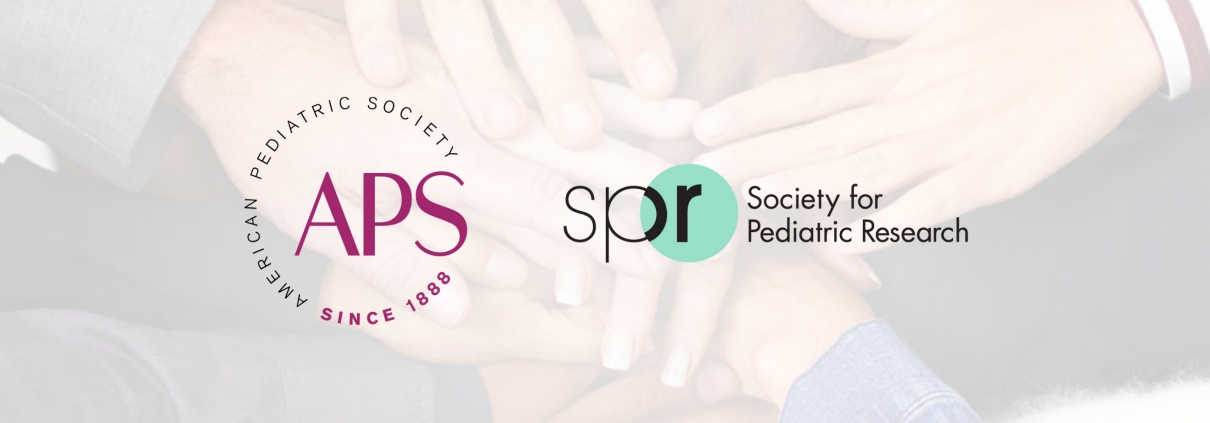Pediatric Policy Council Update
The APS and SPR are members of the Pediatric Policy Council (PPC) which actively advocates for children and academic pediatrics at the federal level. APS representatives to the PPC are Drs. DeWayne Pursley and Jonathan M. Davis; Drs. Joyce Javier and Shetal Shah represent the SPR.
The PPC also includes representatives from the Academic Pediatric Association (APA) and the Association of Medical School Pediatric Department Chairs (AMSPDC). The PPC is based in the Washington DC office of the American Academy of Pediatrics (AAP), who supplies staff and other support.
The latest advocacy developments are summarized by the PPC below
PPC CAPITOL CONNECTION
May 29, 2020
What Matters Now in Washington:
- The PPC called for infusions of funding for pediatric research and pediatric academic departments to address the fallout of the pandemic. More…
- The House of Representatives passed a massive $3 trillion coronavirus relief bill on May 15, but the legislation is not expected to be taken up by the Senate. More…
- Additional data continue to show childhood vaccination rates following, another troubling impact of the COVID-19 pandemic. More…
- The National Institutes of Health (NIH) is funding a study to determine the rate of SARS-CoV-2 infection in children. More…
- PPC members authored policy commentaries in Pediatric Research exploring the intersections of child health policy, advocacy, and pediatric research. More…
PPC Outlines Priorities to Congress for Next COVID-19 Legislative PAckage. In April, the PPC detailed the academic pediatric community’s top priorities for upcoming COVID-19 legislation in a letter to congressional leadership. The letter drew attention to the need for significant infusions of supplemental funding for the biomedical research enterprise and pediatric systems of care. Such funding will be critical to absorbing the costs associated with the research delays faced by non-COVID studies that have been shuttered in compliance with physical distancing. Pediatric academic departments are also in need of additional funding to compensate for precipitous drops in revenue due to deferred care and canceled elective procedures. As such, the PPC is urging additional funding for the National Institutes of Health (NIH) outside of its annual appropriation; direct payments to the pediatric community, which has been largely left out of federal financial relief to date due to its focus on Medicare; and, increased federal support for state Medicaid programs, which provide a significant amount of revenue to pediatric academic departments. The PPC also urged Congress to ensure that children are appropriately included in any federally funded COVID-19 research and to require the collection, analysis, and public reporting of demographic data for individuals diagnosed with COVID-19.
House advances next Coronavirus package as bipartisan talks stall. On Friday, May 15, the House of Representatives passed the Health and Economic Recovery Omnibus Emergency Solutions (HEROES) Act (H.R. 6800) on a near party line vote, signaling an end to the bipartisanship that has marked the congressional coronavirus response to date. The massive $3 trillion legislation includes a temporary increase in the federal Medicaid matching rate, additional financial relief for families, an increase in the child tax credit, additional resources for the Provider Relief Fund, federal nutrition programs, child care, and child abuse prevention. The legislation also includes $4.745 billion for the NIH to expand COVID-19 research and to support the shutdown and startup costs of biomedical research laboratories nationwide. Supplemental funding for the Census Bureau to account for the unanticipated costs of administering the decennial count during the pandemic was also included.
Already, congressional Republicans and President Trump have rejected House Democrats’ proposal, dismissing the bill’s scope and many of its provisions. While Democrats have insisted that the health care system and economy require additional support immediately, Republicans have indicated publicly they feel little urgency to pass additional legislation without further assessing the impact of the $3 trillion Congress has spent to date to address the crisis. Despite standing little chance of being passed by the Senate, the HEROES Act is an opening bid from Democrats in any future coronavirus response legislation. Democrats consider emergency funding for state and local governments, as well as additional direct payments to Americans, essential elements of any future bipartisan agreement. For their part, Republicans are less interested in additional government spending but have indicated they will push for liability protections for businesses and health care workers in any legislation that is ultimately passed.
Data Show Troubling Drop in Childhood Vaccination, Escalating Fears of Secondary Disease Outbreak. The Centers for Disease Control and Prevention (CDC) released a report last week finding rates of childhood vaccine administration have dropped by as much as 22% in Michigan, corroborating earlier reports that children are falling behind on needed immunizations. Previous data from the federal Vaccines for Children program, which provides free vaccinations to children whose families would not otherwise be able to afford them, showed vaccine orders through the program dropped precipitously in recent months. As efforts to contain the spread of the coronavirus accelerated, parents have canceled well-child visits and some remain fearful that bringing their children for routine vaccination risks exposure to COVID-19. However, pediatricians and public health experts are increasingly concerned that a drop in vaccination rates could lead to a secondary disease outbreak of highly infectious illnesses like measles.
NIH Launches Study of COVID-19 in Children. The NIH is funding a study to determine the incidence of SARS-CoV-2 infection in children. The study, called Human Epidemiology and Response to SARS-CoV-2 (HEROS), will help researchers understand how many children are infected with the novel coronavirus, including the number who end up being asymptomatic carriers of the virus. Participants will include healthy children as well as those with asthma or other allergies, to see if those conditions affect kids’ susceptibility to the virus. The study will follow the children and their families for six months.
PPC POLICY COMMENTARIES. Members of the PPC have authored commentaries detailing the policy implications of research published in Pediatric Research. You can read these PPC-authored commentaries online:
- Health policies to address adverse childhood experiences: taking a whole child approach by Michelle A. Lopez, MD, Shale Wong, MD, MSPH, and Jean Raphael, MD, MPH

